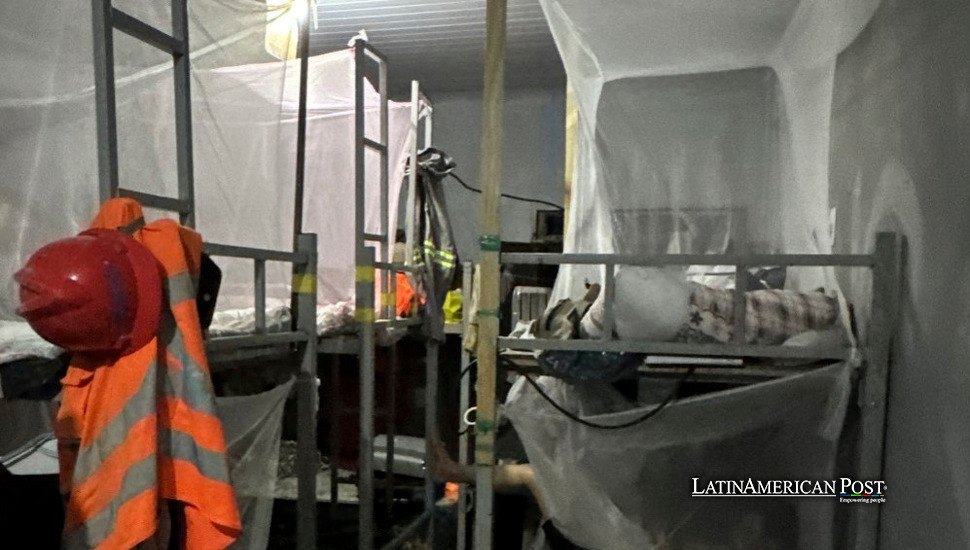What Awaits Workers Freed from ‘Slavery-Like Conditions’ in BYD Brazil?

Upon learning about 163 Chinese workers in Brazil living in deplorable conditions ‒ similar to slavery ‒ people in Brazil and around the world feel worried. The situation involving well-known companies BYD and Jinjiang Group brings up important questions about workers’ rights and company responsibility.
Allegations of Exploitation in Bahia
The controversy began when Brazilian labor inspectors uncovered dire working conditions at a factory construction site owned by Chinese electric vehicle maker BYD in Bahia. The workers, hired by Chinese construction firm Jinjiang Group, were reportedly victims of human trafficking, with 107 of them having their passports withheld.
“These workers were subjected to inhumane conditions that fall under the category of slavery-like practices,” Mauricio Krepsky, a former head of Brazil’s Division of Inspection for the Eradication of Slave Labor (DETRAE), stated.
Both companies have denied wrongdoing. Jinjiang argued that the term “slavery-like” was an overstatement, while BYD announced it had severed ties with Jinjiang. A BYD executive accused media and critics of deliberately smearing Chinese brands and undermining relations between China and Brazil.
The Repercussions of Brazil’s “Dirty List”
If the allegations are upheld, BYD and Jinjiang could face significant consequences, including being added to Brazil’s infamous “dirty list.” This registry publicly names companies found guilty of subjecting workers to degrading conditions.
Being included on the “dirty list” carries severe penalties, such as restrictions on accessing loans from Brazilian banks and enduring reputational damage. Companies listed remain there for two years and must demonstrate compliance with labor standards to avoid future inclusion.
Labor authorities and federal prosecutors are also investigating potential criminal charges against executives. Convictions for human trafficking and maintaining slavery-like conditions carry prison sentences of up to eight years.
Government and Corporate Responses
Negotiations between Brazil’s labor ministry and the implicated companies are underway. Officials want money for workers, including back pay, severance money, and more payments.
BYD said they will pay for travel costs for seven workers returning to China ‒ showing some cooperation. But these actions are just the start of a possibly long journey to settle the case. Victims of human trafficking are entitled to unemployment benefits and can choose to stay in Brazil or return to their home countries. Despite this, many workers face uncertainty as they await the outcome of prolonged negotiations.
A Broader Debate on Labor Practices
This incident shows ongoing worries about immigrant worker conditions in Brazil, mainly in fast-growing areas like electric vehicles. As BYD grows its business in the country ‒ its biggest market outside China ‒ the issue threatens to dim its successes. This case reveals weak spots in labor rights enforcement, not only in Brazil but around the world. Big companies need to make sure their supply chains follow global rules.
The event has also sparked new discussions over Brazil’s labor enforcement systems. While the country has made progress in fighting modern slavery, tricky cases with strong companies can take years to sort out. This isn’t just about one company or one situation. It’s about ensuring labor laws are followed and that vulnerable workers are safe from exploitation.
The Road Ahead
As investigations continue, the results might show a new way for Brazil to deal with forced labor cases involving big international companies. Right now, attention stays on the 163 workers, their healing, and their future. This case has highlighted a problem that needs quick action. We need to use this time to push for better safety for all workers, no matter where they come from or what industry they belong to.
Also Read: Brazil Halts BYD EV Factory Over Modern Slavery Scandal
For BYD and Jinjiang, the risks are significant ‒ besides money fines, their names and future work in Brazil are at risk. As labor inspectors, prosecutors, and human rights advocates push for justice, the incident underscores the importance of vigilance in the fight against modern slavery.





